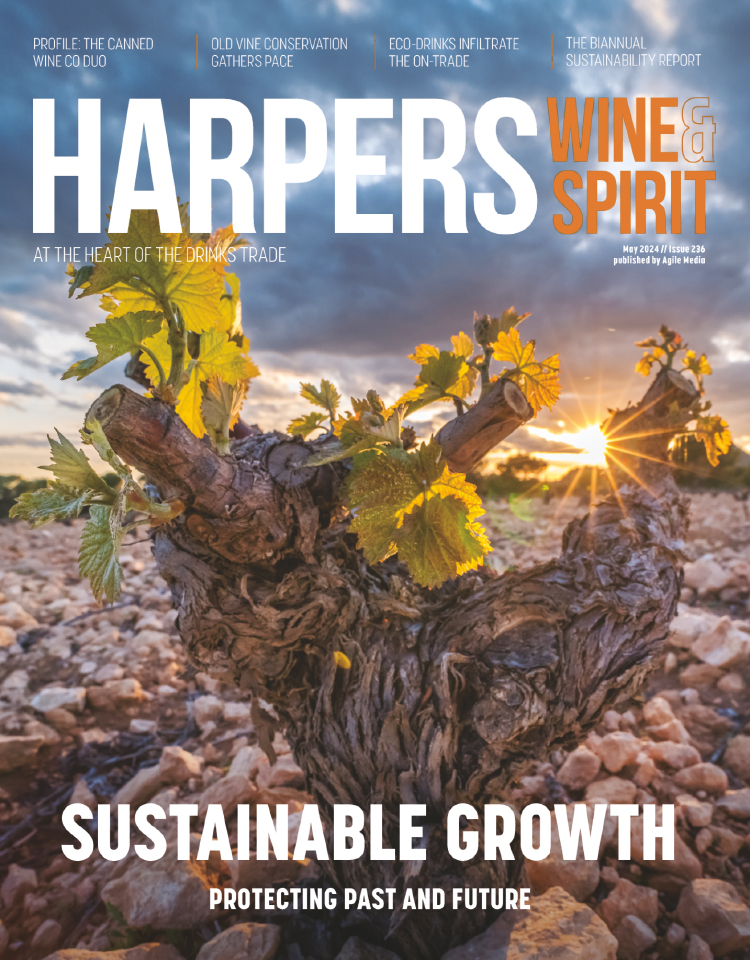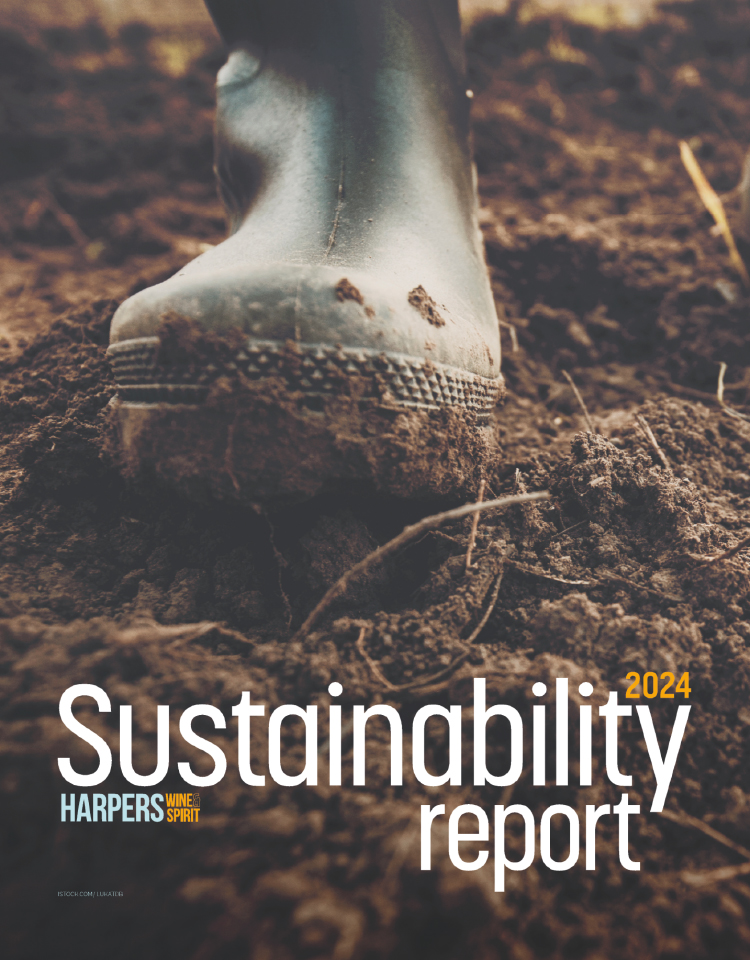
New Horizons Q&A: Archie McDiarmid, Luvians
With an end game to the coronavirus in sight sometime in 2021 as vaccine rollouts begin and up-to-the-wire Brexit uncertainties playing out an extraordinarily tough year, Harpers has been canvassing drinks businesses as to their predictions for trade deep into the new year.
We continue our series with some hard-hitting and grounding views from the indie merchant sector courtesy of Luvians' Archie McDiarmid.
Given everything that’s going on, from Covid to Brexit, what are your three predictions for the next 12 months?
Particularly for independents, the move toward online shopping and tasting, click and collect services, etc, moving from niche services to key business drivers.
Based on everything I hear from our logistics contacts, very long lines at Dover and Kent becoming Europe’s biggest car park.
A sizeable contraction of the UK hospitality and drinks trade in general and of independent retail and supply chain in specifically.
This is an uncertain future for all concerned, when you and your team sit around the table what conversations are you having?
Social distancing makes sitting around a table difficult (unless it is a huge table). But certainly when we chat on Zoom we discuss how to develop our online offering, how to transfer our in person expertise and tasting experiences to digital and remote settings, and how quickly international travel is likely to return in a significant way once the vaccine is generally available. And, when we get all conspiratorial, whether politicians in Westminster or Holyrood are secretly prohibitionists, wildly incompetent, so desperate to be seen to do something they decided to cripple one of Britain’s biggest industries or a weird combination of all three.
We also discuss all the fun stuff we would be talking about if we were still in the shop, awesome wines, beers and spirits we’ve tried, what bar, restaurant or region we are going to visit first when we can travel again and the key question – was Tiger King or The Queens Gambit the best Netflix show of 2020.
What is your biggest concern about Brexit?
Without getting too apocalyptic and worrying about a massive contraction of the trade, particularly on the independent side, my biggest concern is that the wines we buy and have access to are going to become more expensive and more limited in range. Britain has enjoyed a coveted spot as the most diverse and sought after wine drinking market in the world for my entire professional lifetime and that is now under genuine threat. Many suppliers may decide that we are simply not worth the hassle of the additional red tape and importers will have to increase prices to cope with the increased logistics, lengthening of the supply chain and reduced demand due to lower disposable income. Not realising that we are in a deeply enviable position and that most of our problems with a given sector are more the fault of our own government than anyone else’s seems like a running theme of Brexit.
How do you feel the trading environment is going to play out post Brexit?
As always, because we simply don’t know what Brexit is actually going to look like (which is extraordinary after four years of debate and negotiation) trying to predict anything is like trying to tap dance on quicksand blindfolded.
All that being said, regardless of your politics it now seems inevitable and unavoidable that Brexit, combined with Covid-related disruption, is going to result in a long-term economic hit and significant logistical disruption. That will mean lower domestic spending and, until international travel increases (probably not until late summer at the earliest) to balance that out somewhat, I think we are looking at a pretty brutal start to 2021. This would have been true regardless, but add in Covid, especially the furlough system withdrawal, and I suspect we’ll see some pretty savage closures and job losses in the hospitality and retail sectors.
Longer term I am actually more optimistic simply because the drinks trade and its supply chain is full of some of the smartest, most passionate, hardest working people I have ever met and I’m sure solutions, work arounds and new ways of working will be found. But that will be cold comfort to those who couldn’t survive these couple of years of extraordinary turbulence.
What areas of your business has Covid had the biggest impact on?
Wholesale, whisky sales and our events. Wholesale sales to local bars and restaurants was never a major focus for us, but a very useful add on. Restaurant closures and senseless alcohol curfews and bans have effectively eliminated that entire category this year.
When it comes to whisky, which represents around a third of our sales, most of the whisky we sell, particularly at the premium end, is predominantly to out-of-towners. They are either here to play golf, visit the cathedral, castle and stunning local coast, or have come to see students. With the travel restrictions and closures to tourist attractions, that has been massively curtailed and while it has been great to see how locals have definitely stepped up to support us and other local business, they have definitely favoured wine and beer over spirits.
Our events programme has changed radically as we have moved to doing weekly Zoom tastings, which have been great and really well attended, more than making up for having to cancel our regular in store masterclasses. What we haven’t been able to replace is our three major events – Stills, Brew & Vines – which bring in a couple of thousand people. It was really sad to have to cancel the longest running wine fair in Scotland, but we are really hopeful to have a full slate back in 2021.
Anecdotally Brits have been drinking more during the pandemic – do your sales reflect that?
Yes and no. The Coronavirus and the associated lockdown has been the biggest shock to our trading environment in our history. St Andrews is a town whose economy is built around students and tourists, both of which vanished overnight, although as I said, we were delighted by the amount of support we saw from our local customers. By contrast, Cupar, a commuter town for the capital, actually saw demand grow as customers who would have routinely shopped in Edinburgh after work bought locally instead as they worked from home. The two shifts haven’t completely balanced each other out, but certainly we have done better than many other independents in this and many other sectors.
What have you done to take advantage of the rise in off-trade sales during lockdowns?
As local custom became more important to each shop, we found ourselves taking sales from supermarket ranges, so we needed to bulk up our range in the £8-£12 range, where our normal focus would have been in the £15-£30 range.
We also saw an increase in purchasing of mixed cases as new customers explored our range for the first time. This meant complimenting classic regions at competitive price points that were comfortingly familiar with funkier more interesting wines that new customers would only ever find with us. In this regard, the fact that lockdown was instituted so shortly after the major portfolio tastings was actually hugely beneficial and allowed us to bring in new, exciting wines at just the right time. It is demonstrative that our three most popular new wines have been a £8 Provencal rose, a £10 natural Romanian red and £14 Portuguese Vinho Verde.
If you had to pick the next big thing in wine what would it be?
It is a trend that has already started, but I think tastings with wine makers/regions/portfolios being done by small format samples being shipped out and conducted online rather big central events – both for the trade and consumers – will become pretty much the default in 2021 with opportunities both for merchants, logistics companies and producers. When it comes to tastings, getting information direct from winemakers, hearing and seeing everyone else’s questions which might not have occurred to you, the sheer cost and time saving of not having to travel from home to a city centre, the advantages of these online tastings vastly outweigh the downsides of limited networking, the chance to revisit wines through the day, etc.
I can’t see major events like London Wine Fair or ProWein moving online, even full portfolio tastings would be a challenge (although Graft and the IVTT event organised by Raymond Reynolds, Condor, Alpine and others did some really innovative things), but for smaller ‘masterclass’ style events I think online will be the way things are done.
As we all get better with the technology and format, that it will offer a really powerful and economic way of connecting with both the trade and consumers. It also vastly increases the reach of regional merchants who are now able to connect with customers around the UK, not just in their local area.
If you could change one thing about the wine industry, what would it be?
A greater acceptance, integration, promotion and recognition of people who, quite frankly, don’t look like me. University educated white guys dominate the wine trade to a fairly staggering degree and that limits the vision, the opportunities and the potential sales of the entire industry. The numerous stories surrounding sexual harassment and discrimination that emerged this year are a stain on the industry, but the most frustrating thing was that it didn’t feel like much of a revelation, just a depressing confirmation of the state of play.
Encouraging and then – crucially – supporting more women, more people from diverse ethnic and economic backgrounds has to be a priority for everyone involved or we will find ourselves talking to and selling to an ever shrinking echo chamber.
Quickfire questions:
New versus Old World?
Old… but only because choosing New would lose me Alsace and there is nowhere and no wines like them in the world.
Red, white or rosé?
White… is what I drink most often, but it is deeply situational. I am a rosé evangelist and find most meals incomplete without a red.
Screw top or cork?
Screw top… is the superior closure for 99% of wines, cork is still more romantic.
Bottle versus box?
Bottle… despite the fact that it isn’t as efficient a vessel for most wines as box and isn’t as environmentally friendly as can. Resealable 750ml cans anyone?
Still versus sparkling?
Still… but life would be a much duller place without sparkling.






